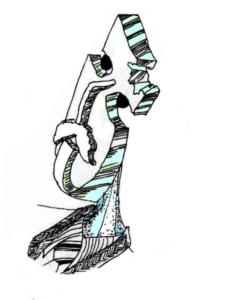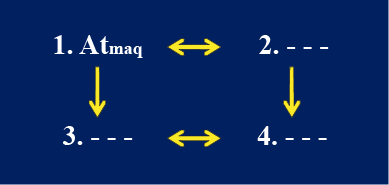Atmaq
1. sound-signify
At: (noun) horse, [primarily] name
Ata: (noun) father
Atmaq: (verb) to throw
Sound-signify:
prominent form/type [–]:
vectorial tendency [a]: (relative to) heights
function [t]: other-transitive
Sound-signify version: ([do the act] relative to heights) + ([functionally] other-transitive)
Semantic interpretation: ([to] do the other-transitive job relative to heights)
background
binary of ‘at’ as a verb and as a noun.
At (noun): horse, [early form of] ad (name)
Ata (noun): father
It seems that the origin of at (horse), at/ad (name), and ata (father) is the same. When a boy used to get 15 years on, he had to do a distinguished job to gain name and counted as a man. Then ata (the father) had to give him a horse (at) and a name (at/ad). Atmaq (throwing [weapons]) was the job that the rider used to do [in fact, from heights to some definite target!] ‘Horse’ itself had come from heights transitively to carry the physicality of the man. Similarly, ‘name’ was given after the great job the boy had done to carry the specifications of a man (the virtuality of the man.) Both were given by ata (the father).
atmaq ≠ yatmaq (at ≠ [y+at])
Yatmaq (to rest, to lie down) is the opposite action to atmaq, i.e., this opposition occurs just by adding [y] (as the first sound) to atmaq.


